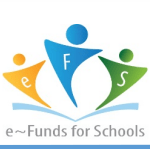
Grade 6-10 Curriculum
The middle school program provides a framework of learning which encourages students to become creative, critical and reflective thinkers. NSCS emphasizes intellectual challenge, encouraging students to make connections between their studies in traditional subjects and the real world. NSCS fosters the development of skills for communication, intercultural understanding and global engagement; all qualities that are essential for life in the 21st century. Curriculum is backwards mapped to prepare students with content and skills necessary for success in the IB Diploma Program and to promote a continuum of education. Studies during the sixth through eighth grade years are aligned with preparing students to handle the IB aims and objectives. Curriculum is presented through a spiraling process. Students are introduced to new topics every year; topics are reinforced in subsequent years, and students gain mastery of complex concepts over time.
The ninth and tenth grade curriculum provides a bridge between the middle school program and the IB Diploma Program. Teachers at NSCS have high expectations for all students. High school programming focuses on acceleration, rather than remediation. Teachers provide scaffolding that explicitly teaches students how to study, how to approach academic tasks, and how to read and write at a college level.
English
As students leave the elementary grades they begin studying the rich literature of English and other languages in translation. They develop skills in literary criticism and, an appreciation of cultural differences. In keeping with the Idaho Core Standards, both creative and nonfiction texts are studied for content and style. In the middle years students take two classes per year to polish their skills in both reading and writing. By the first year of IB, students are beginning to appreciate a language’s breadth, complexity, wealth, and subtleties in a variety of contexts.
Foreign Language
There are two major languages spoken in the Western Hemisphere: Spanish and English. At a minimum, one ought to be fluent in both. Knowledge of a second language will become more and more important to effective leadership in the 21st century. Knowledge of a second language boosts English proficiency, improves memory and self-discipline, and enhances verbal and problem-solving skills. We are an IB World School. By learning Spanish in ninth and tenth grade years and as part of the Diploma Program, we promote an understanding of other cultures through the study of their language.
Social Studies
When students leave the elementary years, their world expands and they begin the study of world history and geography. As they proceed through their middle school and early high school years, their studies spiral back to an in-depth look at the documents and machinery of American democracy in American Government. In the IB diploma class, History of the Americas, students will look very closely at the recent history of the United States and its relationship with other nations in North and South America during the 20th century.
Science
Beginning in the middle school years, students begin more field work with instruments. This enhances the students’ excitement of science so that they can better understand facts and concepts. Students will experience the integrated science process skills of constructing hypotheses, designing investigations/models, identifying and describing relationships between variable, acquiring and constructing tables and graphs to processing data and drawing conclusions based on that data. In the middle school years, students study life and physical sciences. As freshman and sophomores, they will take biology and chemistry as the groundwork for success in the IB Biology class.
Mathematics
Students explore and master pre-Algebra, Algebra 1, and Geometry. Successfully completing Algebra II is the gate to IB math classes. By refining their powers of abstraction and generalization, IB math students develop mathematical knowledge, concepts and principles as well as logical, critical and creative thinking. Students will view and use mathematics as a tool for reasoning and problem solving in purposeful ways in the other content areas.
The Arts
The Arts demonstrate how people understand and record the human experience and our world. A strong music program is part of our core educational offering. Some suggest a strong correlation between cognitive development and musical training. NSCS provides a music training choice for middle school, freshman and sophomore students.
Business and Economics
By weaving business, economics, communication and leadership skills into the fabric of education, NSCS aims to educate future business, civic and community leaders. The economics curriculum focuses on both microeconomics and macroeconomics. Microeconomics is the branch of economics that studies the behavior of individual households and firms in making decisions on the allocation of limited resources. Macroeconomics is the branch of economics that deals with the performance, structure, behavior and decision-making of the whole economy.FDFDF

